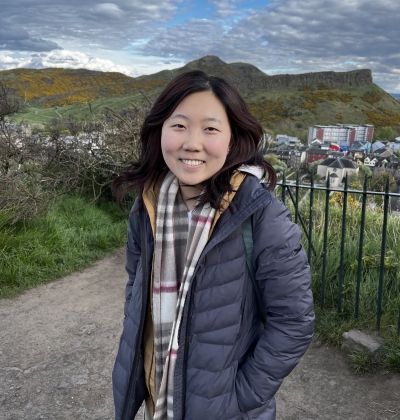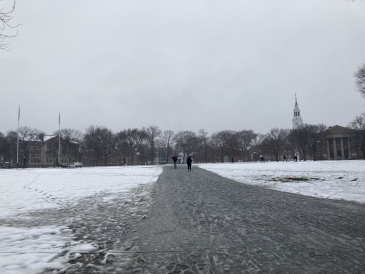
What Does "Academics" Mean?
When I began applying to college, I pulled out my laptop and a document, determined to find out what I wanted out of college. That all-too familiar list stared at me: academics, location, weather, financial aid, food, housing. Researching academic differences between schools confused me most. After a certain point, the differences between schools all felt…pretty much the same. Where was I supposed to start? What was I supposed to look for? Phrases like "undergraduate focus," "class size," and "liberal arts" filled websites, but what did they mean? Not knowing how they impacted a college experience (and not knowing what I wanted), I didn't focus on it very much when formulating my college list. But academics is, well, the core of attending college! One term in at Dartmouth, I've been able to experience a little of how Dartmouth's approach to academics shapes my college experience. Here are a few aspects about the academics at Dartmouth and how they impact my daily life!
The Quarter System
What's a quarter system like? A fast-paced experience, the quarter system means counting down the weeks in the term, naming each week from 1 to 10. Each class has new information that builds upon the previous class—reviews with the professor themselves are usually a separate class outside of the designated hours. There's always something new to talk about and discuss, but more to memorize and understand in a short time—it can build up very quickly. Taking tests for information that I learned several classes ago while also reviewing information from class earlier that day is the norm. But it also means only taking three or four classes in a term, being able to delve deep into the class's subject for two and a half months; by the end of the term, I was astounded at the progress I had made.
Undergraduate Focus
"Undergraduate Focus" felt like a buzzword, accompanied by faculty-to-student ratios and average class sizes. In school, it's a fundamental aspect of my academic experience. I was amazed at the speed at which the administration responded to my questions, at the amount of people available for support that the school provided. In class, the smaller class sizes meant professors knew me by name from the first or second day of class, that I could go to office hours without having to wait for a long time. It means that students who want to research with a professor can, and that students who want to go abroad for a term can do so with minimal hurdles. Dartmouth feels as if it revolves around the undergraduates; sometimes I wonder if I'll have enough time to take advantage of everything offered for undergrads!
Liberal Arts/Graduation Requirements
Every school's graduation requirements are different. I never expected that I would be taking Spanish in college, but because students are to take languages here, I'm able to explore another language, and at a faster pace. Everyone is to take an art class, a science class, and more, only encouraging a wide breadth of subjects to explore. I'm excited to take the required writing class this winter, and the subsequent first-year seminar in the spring, even if I technically cannot take other classes. However, I do not find the requirements limiting—after all, at Dartmouth I'll take a total of around 36 classes—that's plenty of space to take interesting classes. You can see the graduation requirements for Dartmouth here.
I hope this post helps clear up a little bit of what academics means. Of course, there are so many other factors that shape academics, but attending Dartmouth, these three parts of education had the biggest impact my first term. Good luck and thank you!
















